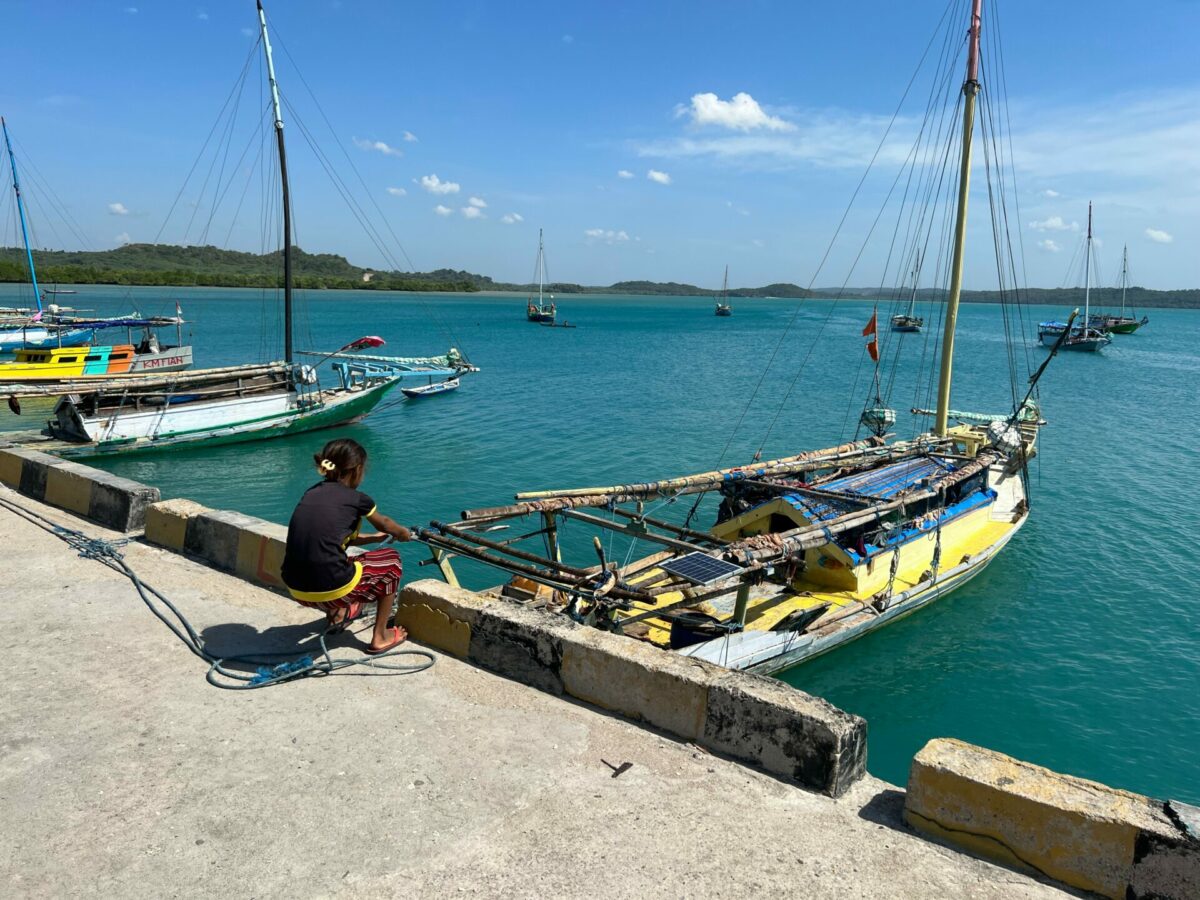Marine resources make vital contributions to food security, livelihoods and the economic development of coastal communities. Climate change is expected to have profound effects on the status and distribution of coastal and oceanic habitats, the fish and invertebrates they support and, as a result, the communities and industries that depend on these resources for survival. To better understand these issues, ATSEA-2 conducted primary data collection to address the priority transboundary problems identified in the Transboundary Diagnostic Analysis (TDA) for the ATS region.
Coastal fishing communities rely on goods and services provided by marine ecosystems to meet their social and economic needs. However, the effects of climate change could be devastating to vulnerable coastal and marine areas, as well as to the function and structure of their ecosystems. Left unchecked, climate change could push more and more people into a deepening cycle of poverty, fragility and vulnerability over the next 10 years.
One of the 92 outer islands of Indonesia, the District of Rote Ndao is located near the transboundary waters of neighbouring countries, including Australia and Timor-Leste. A recent survey on transboundary issues confirmed that Rote Ndao is particularly vulnerable to land degradation, experiencing more extreme droughts, floods and other impacts caused by climate change.

In Rote Ndao, ATSEA-2 has been working to build resilience to climate change by developing home industries and alternative livelihoods. This includes producing soap from seaweed and coffee from mangrove fruit and seaweed. There is also a plan for future development that involves making seaweed-based noodles and toothpaste; alternative livelihoods, which have the potential to improve residents’ economic situation in Rote Ndao Regency.
The ATS region is extremely rich in living and non-living marine resources, including major fisheries and oil and gas reserves. Significantly, the region exhibits high productivity that sustains both small- and large-scale fisheries, including several high-value shared transboundary fish stocks. To identify transboundary priority environmental concerns, their direct and indirect drivers, and impacts on ecosystem services and human well-being, the GEF/UNDP/PEMSEA ATSEA-2 Project commissioned the Centre for Coastal and Marine Resources Studies – IPB University to conduct primary data collection from 18 to 25 June, 2022. The ultimate aim was to update the Transboundary TDA in Rote Ndao.
The team visited Landuti, Oeseli, Oelua, Tolama and Papela Village. Initial findings from the data collection process revealed that coastal communities in Rote Ndao are affected by extreme climate change; around 4,289 households have been hit hard by the impacts of climate change, with examples of stunting and extreme poverty widespread throughout the region.
In spite of these challenges, many women in Rote remain economically resistant, largely because of seaweed. Other potential sources of livelihood, such as tourism and plantations, have not yet been developed; nevertheless, women in Rote appeared motivated to develop and explore the potential of these alternative livelihoods.
As part of adaptive management cycles, ATSEA-2 supports updating of the TDA guided by results and recommendations from the Strategic Action Program (SAP) and National Action Program (NAP) implementation assessments. This process is informed and guided by up-to-date information on governance, ecological and socio-economic conditions, priority issues at the national and regional levels, and relevant international commitments and targets. With the TDA as the basis, the objective is also to present practical and implementable proposals for consideration during development of the ATS SAP.
(By Ezekiel Benjamin Taffarel Marpaung & Dwi Aryo Tjiptohandono)


